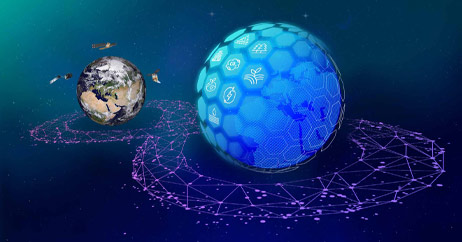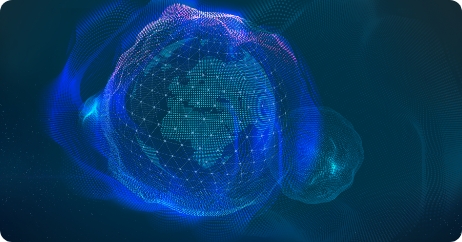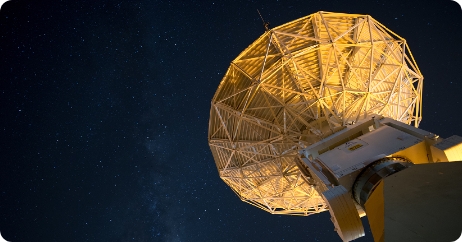ESA Earth Observation Framework
Strengthening Europe's Industrial Competitiveness in Earth Observation
The ESA Earth Observation Framework (EOF) develops the baseline for building and delivering Europe’s next-generation services within ESA EO & Climate programmes.
What is the ESA Earth Observation Framework?
The ESA Earth Observation Framework (EOF) develops the baseline for building and delivering Europe’s next-generation services within ESA EO & Climate programmes.
Help shape the EOF baseline:
share feedback and be part of shaping the future of Earth Observation Framework.
The Benefits
Manage data, information, and services in an ecosystem compliant with EU regulatory standards by default.
Get services ready for easy onboarding into the EOF ecosystem.
Benefit from a network of services where data and service resources are consumed via standardised, secure and optimised interfaces.
Access a rich library of open-source tools to streamline the development of high-quality services compliant to EOF specifications.
Guiding principles of the Framework
Architectural drivers and service integration
DELIVER
Secure and user-centric services.
Commit
To open, interoperable and reusable interfaces or services.
FAVOUR
Transparency and efficiency throughout the operational continuum.
Excellence, Sustainability, and World-Class Services
DELIVER
Highly performant, resilient and of quality data and services.
Commit
To financially and environmentally conscious services.
FAVOUR
European industry delivering world-class operational services.
Fostering Innovation and Competitiveness
DELIVER
European sovereign services conform to the European/ESA regulations and data spaces architecture.
Commit
To technological innovation through competitive participation in ESA managed operations.
FAVOUR
Europe’s capabilities in space technology, data analytics, and Earth system sciences.
The EOF architecture
A Data Space approach for the ESA ecosystem of services specifying guidelines for:
Data and Metadata Quality
High-quality Data Sharing Units and Service Resources with clear targets for quality, completeness, timeliness, and validity.
Operational Excellence
Service quality measures focusing on availability, performance, and reliability to ensure efficient operations.
Standard Data Exchange Interfaces
Well-defined and standardised interfaces to facilitate data exchange between services and stakeholders.
Security
Security requirements for conducting security risk assessments, ensuring that data and services are safeguarded against potential threats.
EOF ecosystem
In the context of the ESA Earth Observation Framework (EOF), a service is any activity undertaken by industry adhering to the EOF’s principles to enable or to ensure the delivery data and information.
EOF services
Services within the EOF Ecosystem encompass those ensuring the ecosystem’s functionality (Foundation Services) and those offering additional capabilities (Value-creation services).
The EOF architecture model adapt the Data Space Support Centre approach to the ESA ecosystem of services
Specification toolkit for EOF
The EOF Toolkit supports EOF participants in implementing and verifying interoperability and compliance.
EOF DOCUMENTATION
Documentation space
Explore the collection of essential EOF documents, curated to inform, guide, and support the EOF community.
From architecture documents and interface control documents to data portfolios.
EOF Events
Connect, Inspire, Thrive
EOF Events bring people together to share ideas, learn, and grow.
From workshops to keynotes, EOF events are where innovation meets community.





